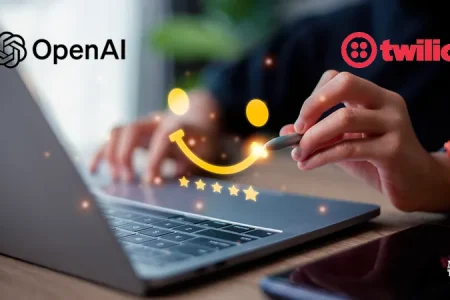In an exciting development for customer engagement, Twilio has announced a collaboration with OpenAI to integrate the new Realtime API into its platform. This partnership is set to empower over 300,000 Twilio customers and more than 10 million developers to craft engaging voice experiences through advanced AI technology.
By incorporating OpenAI’s streaming speech-to-speech (S2S) capabilities, the integration allows businesses to create sophisticated conversational AI virtual agents that utilize OpenAI’s powerful GPT-4o model, known for its multilingual and multimodal capabilities. This latest initiative builds on previous integrations between OpenAI and Twilio announced last year, aimed at harnessing the power of large language models within the customer engagement space.
Inbal Shani, Chief Product Officer of Twilio Communications, highlighted the significance of this integration, stating, “By bringing OpenAI’s Realtime API into our platform, businesses can now provide more human-like, real-time AI voice interactions at scale. This means companies can enhance their voice experiences, reduce operational costs, and ultimately boost customer satisfaction.”
Also Read: Avaya and Verint Strengthen Their Award-Winning Partnership for Cutting-Edge AI Solutions
The speech-to-speech technology represents a significant step forward, enabling AI virtual agents to engage in conversations that feel more natural and human. OpenAI’s real-time API minimizes delays and considers vital aspects like pacing, handling interruptions, tone, and the balance between speaking and listening—elements crucial for creating a positive user experience.
Olivier Godement, Head of Product for API at OpenAI, expressed enthusiasm for the partnership: “The Realtime API’s speech-to-speech features respond to a strong demand for conversational AI solutions. We’re excited to work with Twilio to provide a top-notch developer experience for creating and deploying these advanced agents.”
This technology holds particular promise for customer service and sales sectors, enhancing operational efficiency while delivering exceptional outcomes. Additionally, it aims to make a social impact by enabling nonprofit organizations and public sector entities to implement innovative solutions, such as real-time voice translation for diverse communities.
With this integration, businesses can seamlessly incorporate conversational AI virtual agents into their existing workflows on Twilio’s customer engagement platform. Previously, developers faced the challenge of piecing together multiple vendors and solutions; now, they can leverage Twilio’s unified platform to build and deploy these advanced agents effortlessly.
Twilio’s integration with OpenAI’s Realtime API allows developers to utilize robust voice APIs and software features that include call recording, performance analytics, and AI-driven insights. This means that interactions with virtual agents generate valuable data, leading to improved operational efficiency and personalized customer experiences.
Moreover, Twilio remains dedicated to addressing emerging challenges associated with this technology, such as deep fakes and voice-based prompt injections. As the landscape of risks evolves, Twilio is committed to enhancing its platform capabilities, including future integrations with Twilio Alpha’s AI Assistants, to ensure customer protection and confidence.

